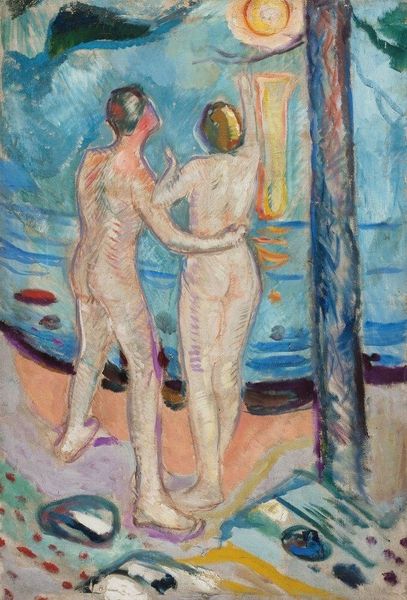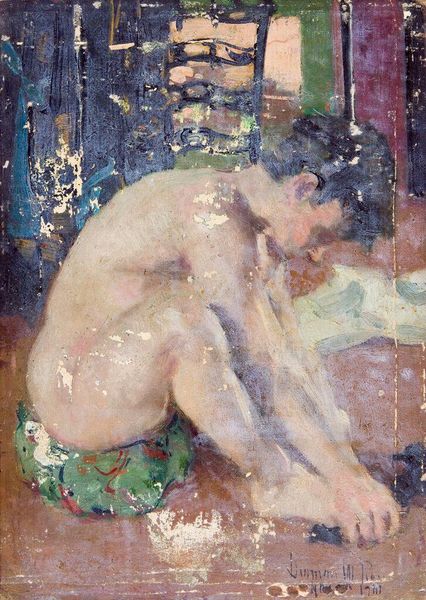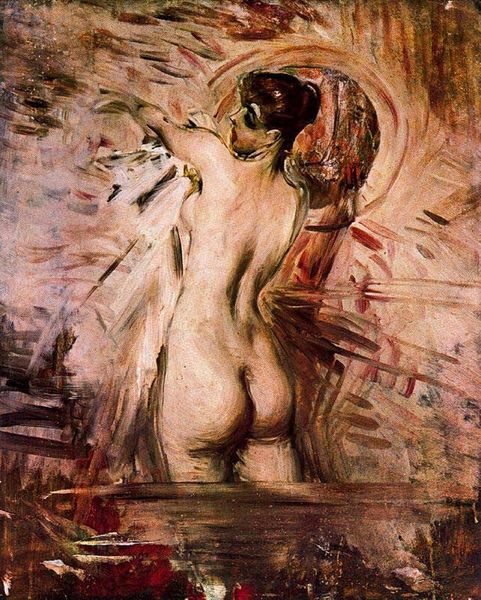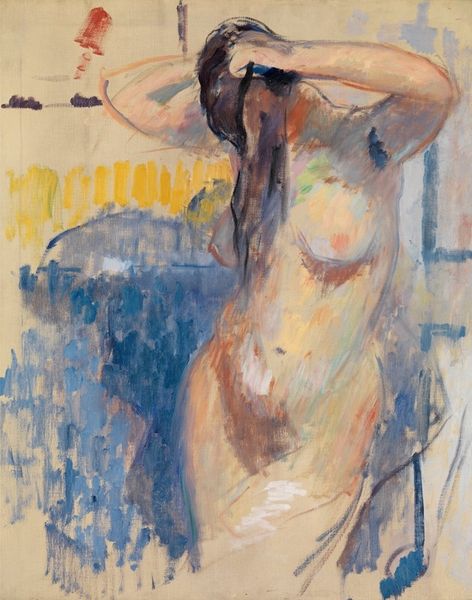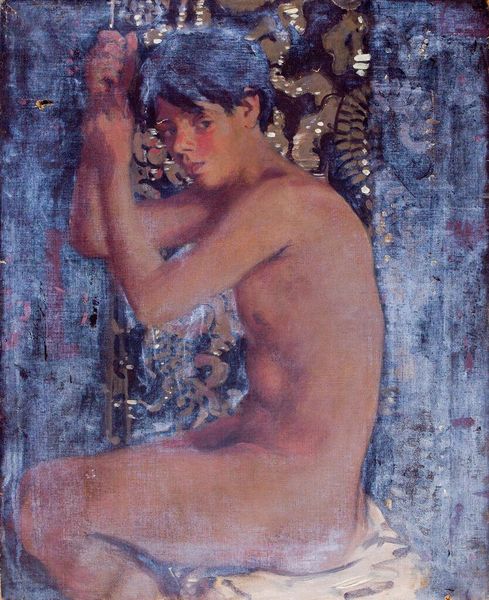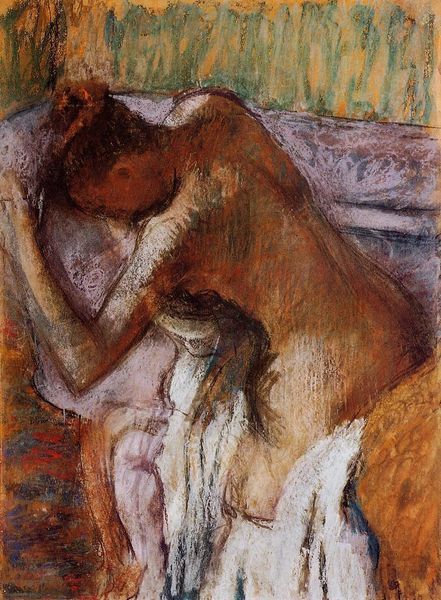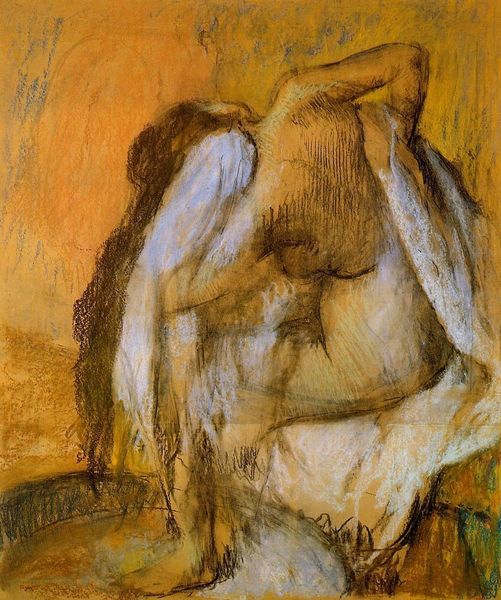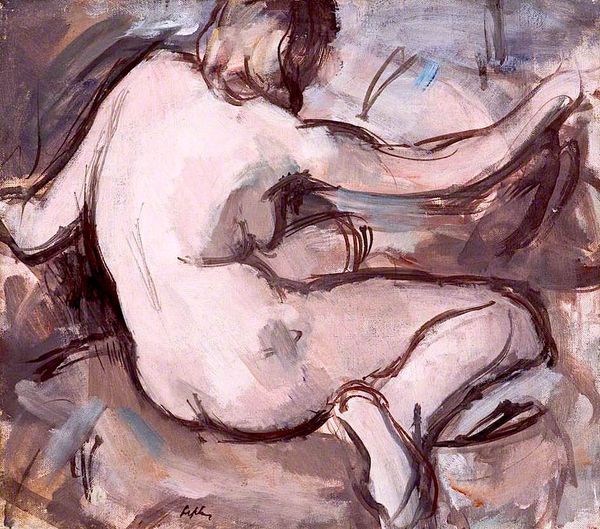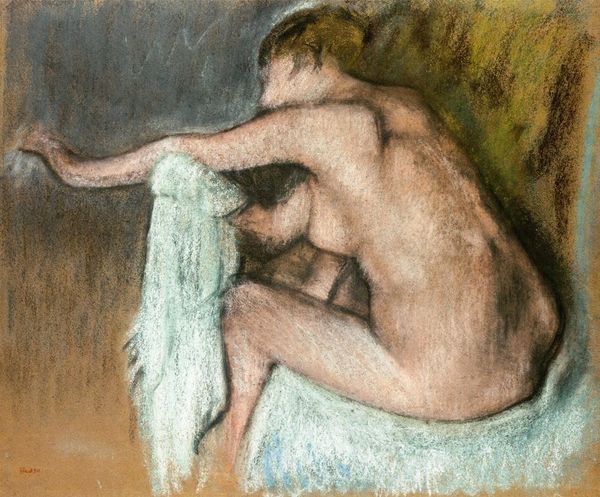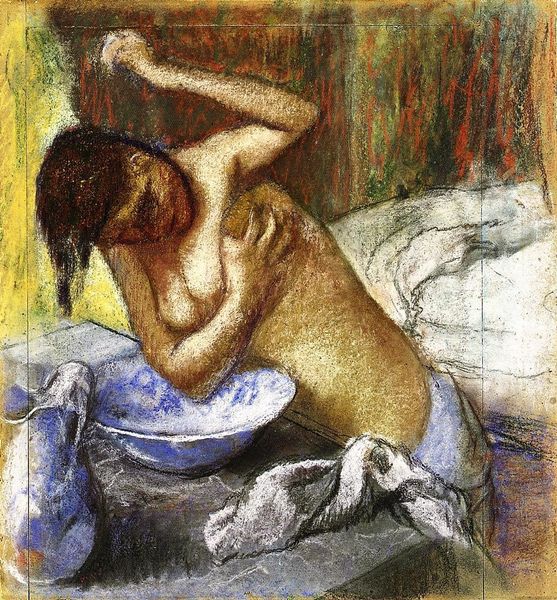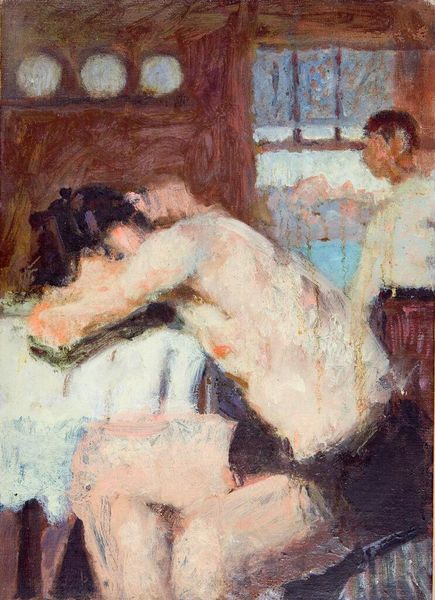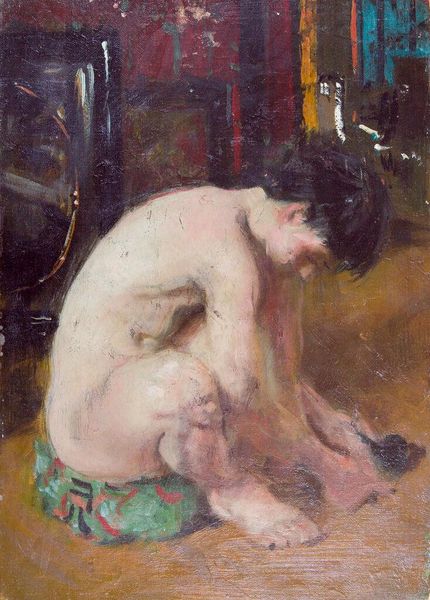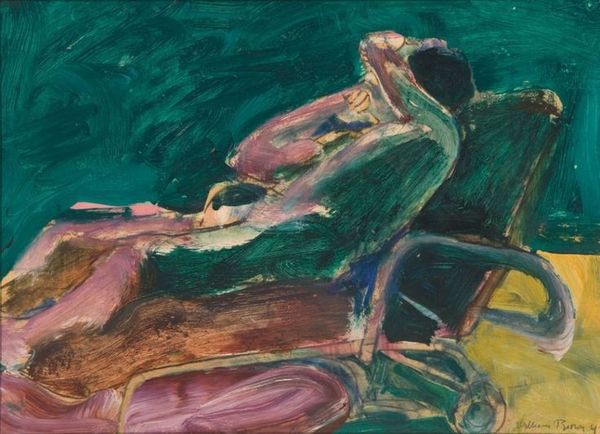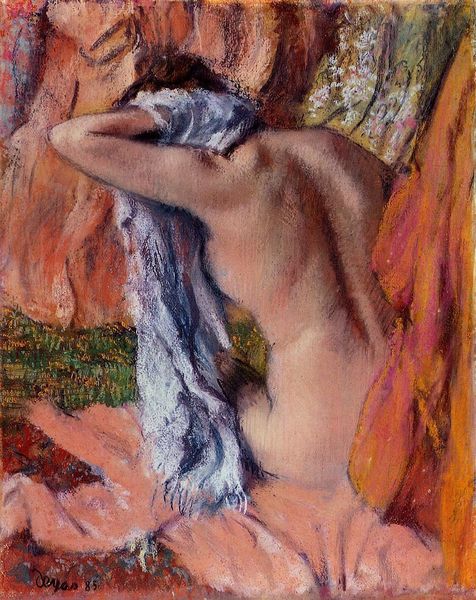
painting, oil-paint
#
painting
#
oil-paint
#
landscape
#
impressionist landscape
#
figuration
#
oil painting
#
expressionism
#
nude
#
expressionist
Copyright: Public domain
Curator: Here we have Magnus Enckell's "Mies Ja Joutsen," or "Man and Swan," completed in 1918. Enckell renders the scene in oil paint. Editor: My first impression is one of almost ethereal fragility. The brushstrokes seem to dissolve the boundaries between the man and the swan, between flesh and feather, reflecting in water. It’s strikingly delicate, especially given its production during a period of significant unrest. Curator: Absolutely. Enckell’s exploration of the male nude, particularly within the context of early 20th-century Finland, becomes a powerful statement. The intimate interaction with the swan could be viewed through a queer lens, challenging prevailing norms of masculinity and desire, especially as same-sex relations were criminalized at the time. Editor: That's interesting because looking at the facture—the way the paint is applied—I'm struck by how tactile and worked the surface is. The physical act of applying these daubs of paint becomes crucial to understanding the piece, the raw materials and labor so apparent. Curator: Yes, and think about how Enckell’s use of symbolism also intersects with the prevailing social narratives. Swans have long been associated with purity, beauty, and even transformation in mythology and art. Juxtaposing that symbolism with a naked man prompts a re-evaluation of accepted narratives about the human form. Considering the era and Enckell’s own background, this embrace challenges norms. Editor: I wonder how accessible materials influenced the expression. The textures almost have an unfinished quality, revealing process, an intriguing approach that asks us to question our expectations for representational painting and artistic labor at this time. What message was sent with his technique? Curator: That emphasis creates a vulnerability. And through our dialogue, we are touching on broader social themes that are both of and beyond their time. Editor: Absolutely. It prompts questions about labor, about the production process of identity itself. Enckell used what was available in his moment to render new ways of seeing and to reveal important conversations, still relevant today.
Comments
No comments
Be the first to comment and join the conversation on the ultimate creative platform.
